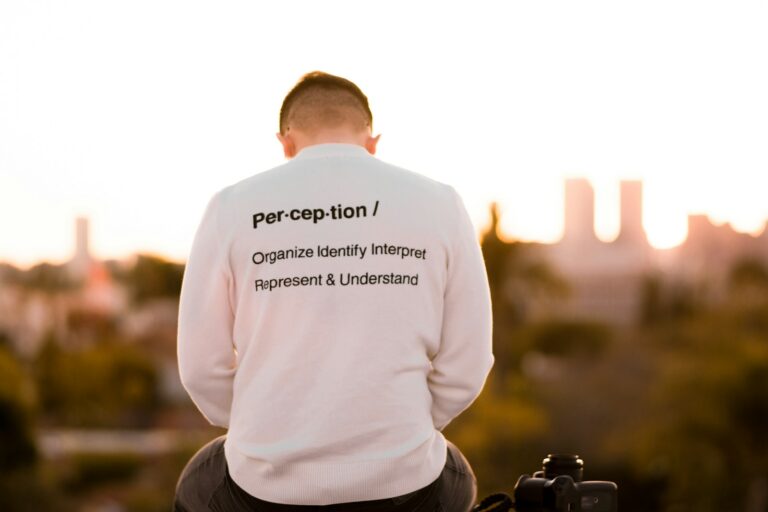Learn how to successfully navigate casual relationships, set expectations, rules and deal with emotions with this highly detailed article.
Casual Relationships: Navigating the Grey Area with Grace and Communication
Introduction
Casual relationships have become increasingly popular in recent years as people seek less commitment and more freedom. A casual relationship is a romantic or sexual relationship that is not bound by the rules of traditional long-term dating.
It allows for individuals to enjoy each other’s company without the pressure of labels, expectations, or exclusivity. Casual relationships can be a lot of fun, but they require careful navigation and clear communication.
Brief explanation of what casual relationships are
Casual relationships are often referred to as “friends with benefits” or “no strings attached” relationships. They typically involve two people who are attracted to each other and engage in sexual activity, but aren’t romantically committed to one another. These types of relationships can range from occasional hookups to a more regular pattern of seeing each other.
The appeal of casual relationships is that they offer physical intimacy without the emotional investment that comes with a serious relationship. This can be appealing if you’re not looking for long-term commitment or if you’re just exploring your sexuality.
Importance of setting expectations and rules
While casual relationships can be fun and exciting, it’s important to set clear expectations and establish rules early on. Without these guidelines in place, it’s easy for one person to feel hurt, confused or led on.
Communication is key when it comes to setting expectations in a casual relationship. Be honest about your intentions from the start so both parties are aware of what they’re getting into.
If you’re only looking for something physical, communicate that clearly so there’s no confusion down the line. It’s also important to discuss boundaries and limitations within the relationship.
For example, will you see other people? Are sleepovers allowed?
What happens if feelings develop? These are all important questions that need to be addressed before things get too serious.
By setting clear expectations and establishing rules early on, you can avoid misunderstandings and hurt feelings down the line. It may not always be the most romantic conversation to have, but it will ultimately lead to a more positive and enjoyable experience for both parties.
Defining Casual Relationships
Casual relationships are often a source of confusion for those who engage in them. They are essentially relationships without commitment, where both parties agree to keep things casual and not get too emotionally invested.
However, that doesn’t mean that they are completely devoid of emotions and feelings. At its core, a casual relationship is one that lacks the typical expectations or obligations of a serious relationship.
It’s an agreement between two people where they may see each other on occasion but there’s no expectation of exclusivity or long-term commitment. While it may seem like it’s easy to define what constitutes a casual relationship, the reality is that it can be quite difficult to navigate.
What is a Casual Relationship?
A casual relationship is generally one where two people engage in sexual activity without any expectation of forming a committed partnership. Unlike serious relationships, there’s no pressure for either person to settle down and no obligation to have specific things like “the talk” or introduce each other to family members.
In fact, many people prefer casual relationships because they allow for more freedom while still satisfying physical desires. Some enjoy the spontaneity and excitement that comes with spending time with someone new without having to worry about the future or any emotional attachment.
How is it Different from a Serious Relationship?
The main difference between casual and serious relationships lies in their level of commitment and expectations. In serious relationships, both partners have made a conscious decision to be exclusive and have open communication about their future plans together.
Casual relationships lack this level of commitment as both parties are free to see other people if they choose without any jealousy or expectation for explanation. They can enjoy each other’s company without worrying about making long-term plans or feeling responsible for their partner’s well-being.
Advantages and Disadvantages of Casual Relationships
One of the biggest advantages of casual relationships is the freedom to explore and enjoy new experiences with others without any major commitment. It can be a great way for people to get to know themselves better while also having fun. However, there are also disadvantages.
One major downside is that casual relationships can often lead to mixed signals and misunderstandings. It’s not uncommon for one person to develop feelings while the other person may not feel the same way.
Another disadvantage is that casual relationships can leave both parties feeling unfulfilled emotionally. This can result in feelings of loneliness or emptiness as they may crave a deeper connection but lack the commitment needed for a serious relationship.
Overall, defining what constitutes a casual relationship is important in order to set expectations and avoid misunderstandings between both parties. As we move forward, we’ll discuss setting expectations within these types of relationships and how communication plays a critical role in making them work.
Setting Expectations
When it comes to casual relationships, setting expectations is crucial. Communication is key in any relationship, but especially in a casual one where boundaries and limitations might not always be clear. It’s important to discuss what each person wants and expects from the relationship before getting too involved.
Communication Is Key
The first step in setting expectations is communication. This means being honest about your intentions and what you hope to gain from the relationship.
If you’re looking for something casual without any strings attached, make sure your partner knows that. If you’re interested in seeing where things go but aren’t ready for anything serious, communicate that as well.
It’s also important to be open and honest about potential dealbreakers or areas where you might need more clarity. Discussing these things early on can help prevent misunderstandings or hurt feelings later on down the line.
Discussing Boundaries and Limitations
In addition to discussing intentions, it’s important to discuss boundaries and limitations when it comes to a casual relationship. This might include things like whether or not you’re seeing other people, how often you want to see each other, and what kinds of activities are on the table.
It’s important to remember that everyone has different comfort levels when it comes to physical intimacy as well, so make sure you discuss what feels comfortable for both parties. This can help prevent any confusion or discomfort later on.
Being Honest About Intentions
Being honest about intentions is crucial in a casual relationship. If one person starts developing stronger feelings than the other or wants something more serious than what was initially discussed, it’s important to address those feelings honestly rather than letting them fester. By being upfront about intentions from the beginning and checking in regularly throughout the course of the relationship, both parties can ensure they’re on the same page and avoid any misunderstandings or hurt feelings.
Navigating the Grey Area
How to handle mixed signals
One of the biggest challenges in a casual relationship is dealing with mixed signals. It’s not uncommon for one person to want more from the relationship while the other is content with keeping things casual. This can lead to confusion and hurt feelings if not handled properly.
The best way to handle mixed signals is to communicate openly and honestly. If you’re unsure about where you stand in the relationship, ask your partner directly.
Don’t assume anything or play guessing games. By being upfront about your feelings and intentions, you’ll avoid misunderstandings and potential heartbreak down the line.
Avoiding assumptions
Assumptions are another common pitfall in casual relationships. It’s easy to assume that just because you’re spending time together, you’re on the same page about what your relationship means.
However, this can be a recipe for disaster. To avoid assumptions, it’s important to have regular conversations about your expectations and boundaries.
Don’t assume that your partner knows what you want or need from the relationship – spell it out clearly for them. By being proactive in setting expectations, you’ll minimize misunderstandings and maximize enjoyment of your time together.
Understanding the difference between casual dating and hookups
It’s important to understand that there’s a difference between casual dating and hookups. Casual dating typically involves hanging out together in a low-pressure environment without any specific end goal in mind. Hookups, on the other hand, are typically focused solely on sexual pleasure without any expectation of emotional attachment.
Understanding whether you’re engaging in casual dating or hookups can help set clear expectations for both partners involved. If you’re unsure about which category your relationship falls into, have an open conversation with your partner about what each of you wants from the experience.
By navigating the grey area with care and consideration, you can enjoy all the benefits of a casual relationship without any of the potential pitfalls. Communication, honesty, and clear boundaries are key to success in this type of relationship.
Rules to Follow in Casual Relationships
Respect each other’s time and space
One big advantage of casual relationships is the freedom it provides. However, this doesn’t mean that you can just come and go as you please without any consideration for your partner’s time and space. Respect is essential in any relationship, even if it’s not a serious one.
When you make plans with your casual partner, stick to them or give them a heads-up if you need to cancel or reschedule. Don’t assume that they’re always available whenever you want to see them.
Make sure you communicate your expectations upfront so that there are no misunderstandings later on. In addition, don’t overstep boundaries when it comes to personal space.
You may enjoy spending time with your partner, but everyone needs alone time too. Don’t be clingy or possessive; give them the space they need to pursue their own interests and hobbies.
Be honest about seeing other people
One of the defining characteristics of casual relationships is that both partners are free to see other people if they choose to do so. However, this doesn’t mean that lying or deception is acceptable.
Honesty is crucial in any kind of relationship, even a casual one. If you’re seeing other people besides your casual partner, let them know upfront.
This way, there are no surprises down the road and everyone knows where they stand. If exclusivity is important for either party, then it’s essential to have an open conversation about whether or not it’s something that can be agreed upon.
Being honest also means respecting your partner’s feelings on the matter regardless of what the outcome may be. If they’re uncomfortable with seeing other people while being in a casual relationship with you, then it might be best to respect their wishes and avoid hurting them further down the line.
Practice safe sex
One of the biggest risks associated with casual relationships is the potential for contracting sexually transmitted infections (STIs). This is why it’s essential to practice safe sex at all times and ensure that both partners are aware of their sexual health status.
Always use protection when engaging in sexual activity, even if you’re using other forms of birth control. Get tested regularly for STIs and share your results with your partner.
Be open about your preferences when it comes to safe sex practices so that everyone is on the same page. Additionally, be respectful if your partner chooses not to engage in sexual activity until they feel more comfortable or have been tested for STIs.
Everyone has different comfort levels and boundaries, so it’s important to respect those choices as well. Overall, following these rules can help ensure a positive experience in casual relationships by fostering respect, honesty, and safety.
Dealing with Emotions
One of the biggest challenges in casual relationships is managing emotions once they start to develop. It’s easy to get caught up in the excitement and thrill of a new flirtation or relationship, but when one person starts to feel more invested than the other, things can quickly become complicated.
The first step in dealing with emotions is to be honest with yourself about what you’re feeling. If you find yourself daydreaming about your partner, constantly checking your phone for messages, or feeling jealous when they see other people, it might be time to admit that you want something more than just a casual connection.
If this happens, it’s important to communicate your feelings with your partner as soon as possible. Ignoring them or hoping they’ll go away will only make things more difficult in the long run.
Explain how you’re feeling calmly and without pressuring them into anything they’re not comfortable with. Remember that while it’s okay to want more from a relationship, it’s equally important to respect your partner’s boundaries and wishes.
Managing Expectations When Feelings Develop
Once you’ve had that conversation with your partner and established where both of you stand emotionally, it’s time to start managing expectations moving forward. It can be tempting to get swept up in romantic gestures or make assumptions based on what you think a serious relationship should look like, but remember that this is still a casual connection. This means that while there may be some emotional intimacy involved, neither party should feel obligated to act like traditional partners.
You might not go on regular dates or meet each other’s families; instead, focus on enjoying each other’s company without putting too much pressure on what comes next. It’s also important to keep communication open and honest throughout this phase of the relationship.
Make sure you’re checking in with each other regularly and being clear about what you want and expect from the connection. This will help avoid misunderstandings or hurt feelings down the line.
Knowing When to End a Casual Relationship
As much as we might wish otherwise, casual relationships don’t always last forever. Sometimes, one person wants more than the other, or life circumstances change and make it difficult to continue seeing each other without becoming too invested. If you start to feel like your needs aren’t being met in a casual relationship, or that you’re no longer getting enjoyment out of it, it might be time to consider ending things.
This can be a difficult decision – after all, no one wants to hurt someone they care about – but it’s important to prioritize your own emotional wellbeing. If this is the case for you, have an honest conversation with your partner about why you feel like things aren’t working out.
Be kind but firm in explaining your reasons for wanting to end things, and try not to leave any room for misinterpretation or false hope of rekindling the relationship later on. Breaking up is never easy, but remember that sometimes it’s necessary in order to move forward and find what truly makes us happy.
Conclusion
Navigating casual relationships can be tricky, but with open communication and clear expectations, it is possible to have a successful and enjoyable experience. Casual relationships can provide a lot of benefits, such as exploring different types of relationships without the commitment, having fun experiences together, and learning more about yourself and what you want in a partner. Setting boundaries and limitations is crucial when it comes to casual relationships.
This means being honest about your intentions, communicating openly with your partner, and being respectful of each other’s time and space. It’s important to remember that casual relationships are not the same as serious ones, so managing expectations is key.
It’s also important to practice safe sex in all types of relationships. Make sure you are aware of the risks involved with unprotected sex and take necessary precautions.
And finally, if at any point feelings develop or you realize that a casual relationship isn’t what you want anymore, it’s okay to end things gracefully. Navigating casual relationships may not always be easy but can be an exciting adventure if approached in an open-minded way.
Remember that communication is key to setting expectations, boundaries and limitations- so talk openly with your partner about what works for both of you! Ultimately trust yourself when making decisions about how far things should go or whether or not this type of relationship suits your long-term needs- only then will you find true happiness in this form of dating!






